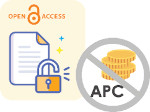Evaluation of glycemic management of users with diabetes in a health and well-being application
DOI:
https://doi.org/10.61661/congresso.cbmev.7.2024.138Keywords:
diabetes, Health App, self-care, Lifestyle MedicineAbstract
Introduction: Diabetes is a chronic condition characterized by persistent hyperglycemia and its treatment requires self-care and lifestyle changes. As a result, people seek accessible solutions, such as health apps that provide professional support, health education and self-management guidance. Objective: Analyze the relationship between sociodemographic profiles and the glycemic management of individuals with diabetes using a wellbeing health app. Methodology: User follow-up lasted six months and included two consultations with nurses, one medical consultation after lab tests and three consultations with nutritionists. Protocols were based on lifestyle medicine pillars. Participants had access to educational materials, chats with professionals and a digital community. Data collection occurred during the nurse's anamnesis. A descriptive analysis of the data and a correlation matrix were performed. The study was approved by the USP Research Ethics Committee (6.690.907). Participants signed a digital informed consent form. Results: 124 users participated in the study, with 68.5% female, 34% aged between 46 and 59 and 61% from the Southeast region of Brazil. All had at least one appointment with the nurse, but only 39% consulted with the doctor and 29% consulted with the nutritionist. The majority did not undergo the lab tests (61%). It was observed that most users with a glycated hemoglobin (HbA1c) level within the target never or rarely measured their blood glucose (54.5%). Another relevant finding was that 57% of those with HbA1c within target, regularly engaged in physical activity, demonstrating a relationship between exercise and glycemic management. Additionally, it was seen that most users with HbA1c (75%) and total cholesterol (79%) within targets used private healthcare, suggesting a connection between healthcare access and improved clinical outcomes. Conclusion: The use of a health app based on lifestyle medicine practices supports glycemic management. However, engaging people with chronic conditions in a digital health journey remains a significant challenge.
References
BRASIL. Ministério da Saúde. Secretaria de ciência, tecnologia, inovação e insumos estratégicos. Protocolo Clínico e Diretrizes Terapêuticas do Diabete Melito Tipo 2. Fevereiro de 2024.
Shan, Rongzi et al. “Digital health technology and mobile devices for the management of diabetes mellitus: state of the art.” Diabetologia vol. 62,6 (2019): 877-887. https://doi.org/10.1007/s00125-019-4864-7 DOI: https://doi.org/10.1007/s00125-019-4864-7
Block, Gladys et al. “Diabetes Prevention and Weight Loss with a Fully Automated Behavioral Intervention by Email, Web, and Mobile Phone: A Randomized Controlled Trial Among Persons with Prediabetes.” Journal of medical Internet research vol. 17,10 e240. 23 Oct. 2015, https://doi.org/10.2196/jmir.4897 DOI: https://doi.org/10.2196/jmir.4897
Quinn, Charlene C et al. “WellDoc mobile diabetes management randomized controlled trial: change in clinical and behavioral outcomes and patient and physician satisfaction.” Diabetes technology & therapeutics vol. 10,3 (2008): 160-8. https://doi.org/10.1089/dia.2008.0283 DOI: https://doi.org/10.1089/dia.2008.0283
Pititto B, Dias M, Moura F, Lamounier R, Calliari S, Bertoluci M. Metas no tratamento do diabetes. Diretriz Oficial da Sociedade Brasileira de Diabetes (2023). https://doi.org/10.29327/557753.2022-3 DOI: https://doi.org/10.29327/557753.2022-3
Meyerowitz-Katz, Gideon et al. “Rates of Attrition and Dropout in App-Based Interventions for Chronic Disease: Systematic Review and Meta-Analysis.” Journal of medical Internet research vol. 22,9 e20283. 29 Sep. 2020, https://doi.org/doi:10.2196/20283 DOI: https://doi.org/10.2196/20283
Salas-Groves, Emily et al. “Behavior Change Effectiveness Using Nutrition Apps in People With Chronic Diseases: Scoping Review.” JMIR mHealth and uHealth vol. 11 e41235. 13 Jan. 2023, https://doi.org/10.2196/41235 DOI: https://doi.org/10.2196/41235

Downloads
Published
How to Cite
Issue
Section
License
Copyright (c) 2024 Bárbara Shibuya, Ana Renata Ferreira, Juliana Malafaia, Lívia Barbosa, Carlos Antunes, Livia Tanizaki, Patricia Caldeira, Alexandre Tarifa, Carolina Pimentel

This work is licensed under a Creative Commons Attribution 4.0 International License.
The VI Brazilian Congress of Lifestyle Medicine allows the author(s) to maintain their copyright without restrictions. Publications are licensed under the Creative Commons Attribution 4.0 International License - CC-BY


